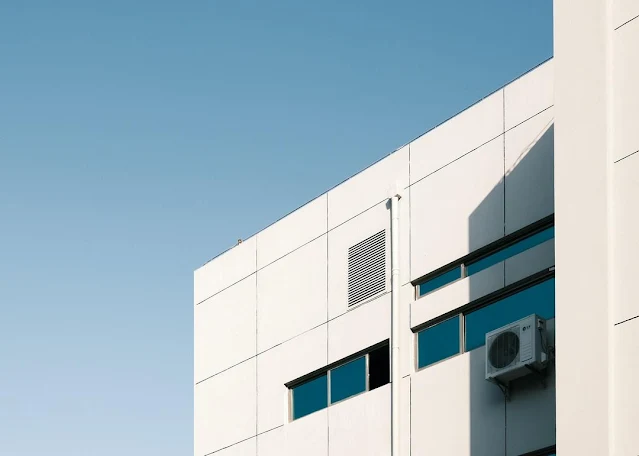Ad Code
Translate
Five Do’s For a Healthy Turnover That Bolsters Talent-Retention
October 20, 2025
Smart strategies for trading on crypto exchanges
October 20, 2025
What is Ozempic (semaglutide)? (Updated in 2025)
January 30, 2025
Discover Honeybee Pharmacy (2025 Guide Important Consumer Tips)
October 14, 2025
Posture Bra: Improving Back Support and Comfort
October 20, 2025
How To Find Suitable Properties In Cyprus?
October 20, 2025
10 Effective Strategies to Improve Domain Authority of Your Website
October 20, 2025
What Is the Difference Between a Heat Pump and AC?
Zizo Gala-Mkhize
March 09, 2022
Every home needs a reliable heating and cooling system. This is necessary not just for comfort but also to maintain the temperature to avoid property damage, control humidity, and prevent energy waste. As a homeowner, you can utilise different types of cooling and heating systems for your property. Some of the most common systems used are heat pumps and air conditioners. If you're trying to figure out which one is best for your home, this guide may be useful. Learn more about the differences between heat pumps and air conditioners, and find out the advantages and disadvantages below.
Heat pumps allow for both cooling and heating.
The difference between heat pumps and AC is the fact that heat pumps have the ability to both cool and heat your home. Air conditioners typically require an additional system to utilize a heating mode. This is because air conditioning is purely designed to cool your home. Both heat pumps and air conditioners use a refrigerant to remove heat from indoors. Then, the system pushes the warm air outside. Heat pumps can change the direction of the refrigerant flow, which allows it to transfer the heat into the home. If you're looking to have both functions, then you may want to consider getting a heat pump.
Air conditioners are more affordable to maintain and repair.
Choosing an air conditioner means that the upfront cost may be higher. This is because you'll also need a separate heating system installed to have both functions available in your home. But overall, the maintenance costs less, and it's more affordable to maintain. AC units cost more upfront also because they typically last longer than the average heat pump. This is because HVAC units are only used in warmer seasons. Meanwhile, heat pumps are used year-round thanks to their ability to heat and cool.
Both systems can remove heat from your home.
Contrary to what it seems, heat pumps and air conditioners don't have the ability to add cool air into a room. They actually lower the temperature indoors by removing heat through a coil using a compressed refrigerant. Then, the systems take that collected heat and transfer it outside. It's a simple heat transfer from indoors to outdoors. If you were just glancing at an outdoor unit, you likely would have difficulty telling them apart because they function very similarly.
There isn't a significant difference in energy costs.
The best part about these two systems is the fact that they are the same in terms of energy use. You'll find that your utility bills will be around the same. A lot of systems have high SEER ratings, which allow for cooling with more energy efficiency. Keep in mind that a heat pump may use up more energy when it's in heating mode. This usually occurs when the outside temperature is below freezing. This is because the heat pump will need more electricity to switch the compressed refrigerant and work in reverse. Instead of removing heat, it will need to add heat to maintain comfort indoors.
Making the right choice between heat pumps and air conditioners all depends on what you're looking for in a system. It's also dependent on the climate of where you live. For example, places with colder climates may want to choose an air conditioner and pair it with a furnace for colder months. For any issues in furnace, you can call furnace repair Toronto specialists. Meanwhile, somewhere with mild winters may not need anything more than a heat pump all year-round. The most important factor tends to depend on your individual needs. Your budget is also a factor because upfront costs and operating costs will differ. These are the differences to consider when it comes to heat pumps and air conditioners.
Featured Post
DL Mining Launches Ethereum Contract Participation Service, Helping Users Earn $2K Stable Daily Returns
Zizo Gala-Mkhize-
October 20, 2025
Soapie Teasers
Sister Sites
Most Popular
List of 6,000+ Dofollow Commentluv Blogs FREE (Updated 2025)
January 16, 2025
A Wood-Burning Stove in a Tent: A Guide to Safe Hot Tenting
April 08, 2021
Five Do’s For a Healthy Turnover That Bolsters Talent-Retention
October 20, 2025
Popular posts
List of 6,000+ Dofollow Commentluv Blogs FREE (Updated 2025)
January 16, 2025
A Wood-Burning Stove in a Tent: A Guide to Safe Hot Tenting
April 08, 2021
What is Ozempic (semaglutide)? (Updated in 2025)
January 30, 2025
Footer Menu Widget
Created By Blogspot Theme | Distributed By Gooyaabi Templates



Social Plugin